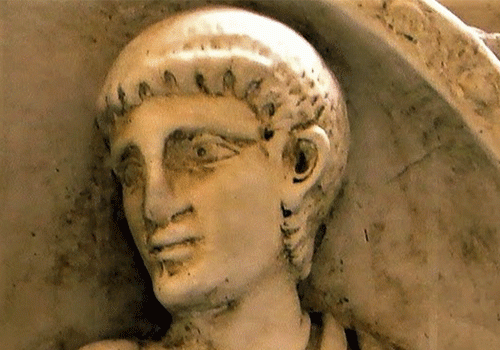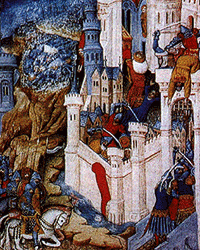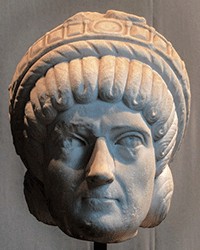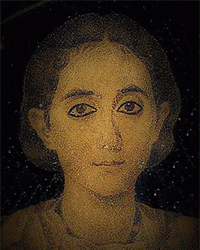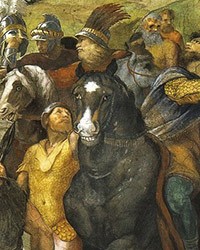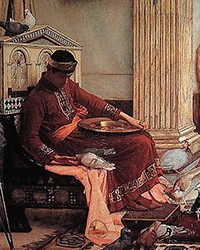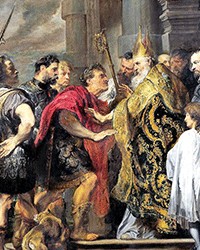In the year 425 the six-year old Valentinian III ascended to the throne of the Western Empire. After a grand enthronement, which took place in Rome, he along with the de facto regent, his mother Galla Placida, who was the guardian of the young ruler, went to the then imperial residence in Ravenna. There, a difficult task awaited them, defeating the usurper to the throne – John, putting an end to the civil war, establishing relations with the three main leaders of the then Roman army and facing off with the barbarian tribes. During the battles with both the internal and external foes , the greatest determination and abilities were displayed by Aetius. His experience acquired as a youth when he was a prisoner of the Visigoths and Huns, came in handy. The latter supported him when in 433 he fought against the Visigoths and Burgundians in Gaul, which in a decisive way strengthened his position in Ravenna. Starting in 435, without any rivals, he headed the Roman army and became the most important person in the empire. He enjoyed the respect of both the Roman legions as well as barbarians – playing them against each other in various ways. This caused an increasing frustration of the young emperor and his mother, who noticed the gradual marginalization of their role. Nobody at court had any doubts that the actual ruler of the empire was Aetius, wielding the nobilitating title of Patricius (at that time a position equal with that of head of the government). Strangely enough, the Huns who supported Aetius, contributed to this situation. They also became the reason of his downfall, when they became enemies of Rome. This took place when their armies entered Rome, after the emperor’s sister Honoria sent a letter to the leader of the Huns, Attila, requesting help and offering her hand in marriage. Despite the fact that Aetius defeated them at the Catalunian Plains in 451 he did not crush them completely, believing – not without merit – that their role in the struggle with Germanic tribes is still important, especially in face of the ever-growing significance of the Visigoths. It is in them that Aetius saw the greatest threat to the empire. He was then accused of causing great losses of human life and support of barbarians.
When the Huns suddenly disappeared from the political arena, Aetius had outgrown his usefulness to the emperor. Faced with such a situation, he desired to strengthen his position attempting to marry off his son Gaudentius to the emperor’s daughter. And while previously such a marriage would not have arisen any controversies, at the present the emperor did not see the need for such (nevertheless beneficial for the empire) marriage, which would allow the descendants of Aetius to ascend the throne after the emperor’s childless death. The well-hidden grudges held towards his own general turned into outright contempt. The emperor blamed him for lack of support for the renewed unification of the Eastern and Western Empire at the time of the death of his cousin and at the same time father-in-law – Theodosius II (the emperor of the East). For Valentinian this was a chance for his own glory, but Aetius considered such a step to be dangerous.
We do not know what ultimately was the straw that broke the camel’s back and when the emperor made the decision to murder the unwanted general. He committed the deed himself in September of 454. We also do not know whether that had been the plan all along or had the emperor’s emotions got the better of him, during and audience which he granted to Aetius on Palatine Hill. Priscus, an eastern-Roman chronicler from the V century writes, that the emperor with a cry that “he has had enough of Aetius’s betrayals” drew his sword and attacked the defenseless general in which he was aided by a member of the court. Thus ended the life of one of the most admired generals of the late Roman empire, praised by Romans for his virtues – courage, determination, patriotism, and loyalty towards the emperor.
Along with Aetius the period of relative stability of the Western Empire ended as well. The next decade would bring about generals assuming their posts through assassinations and rapidly changing emperors. Their story would simply be an opening act to the downfall of the empire in 476.

